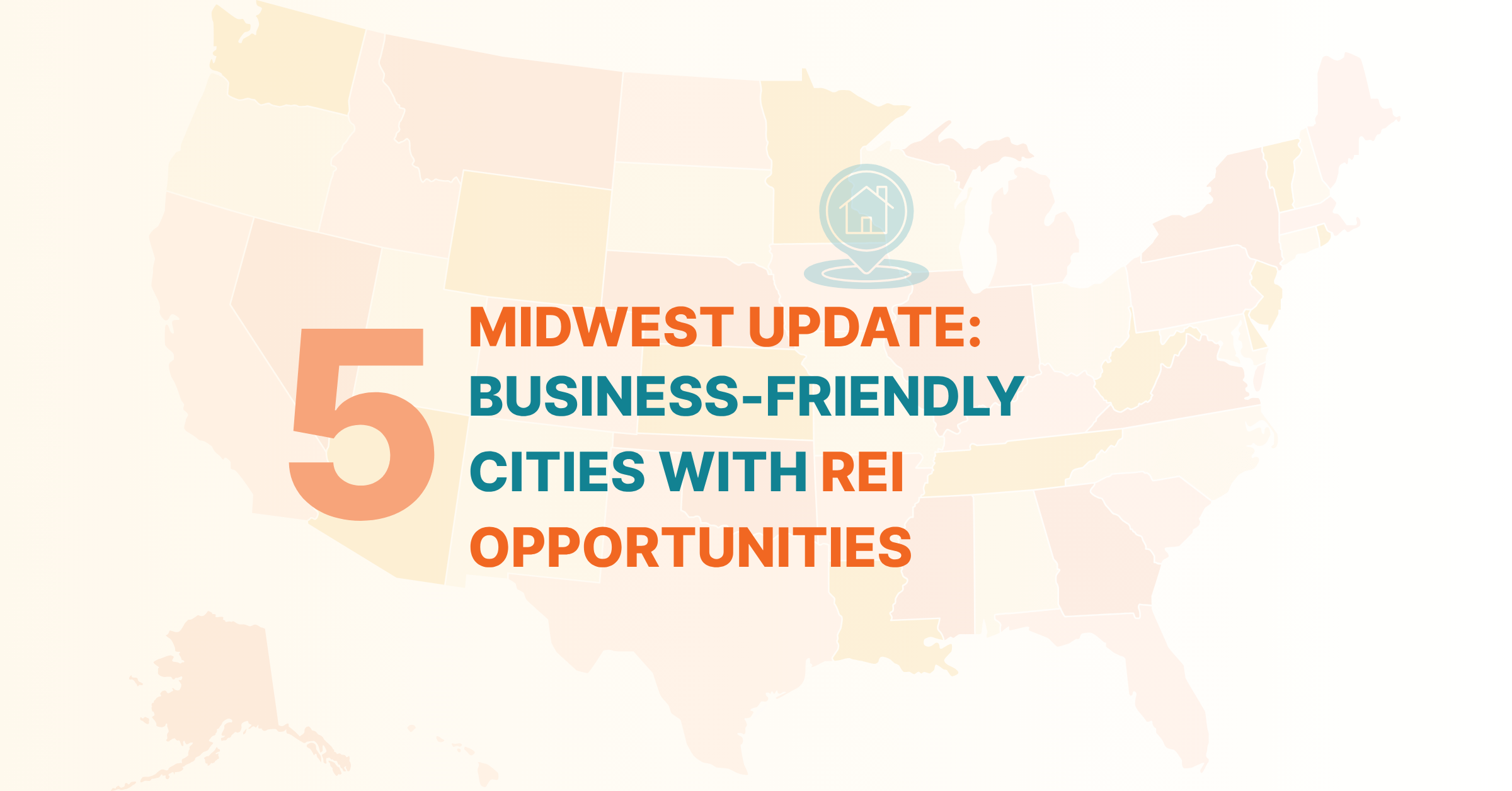Disclaimer: PropStream doesn’t offer investing advice. We recommend consulting a professional before buying real estate in Massachusetts.
As one of the first states to join the Union, Massachusetts has a well-established housing market that is still thriving today. In February, its capital, Boston, was named the hottest real estate market in the nation.
But what does a “hot real estate market” mean, and why is Massachusetts a desirable region for real estate professionals?
In this article, we’ll delve into the current state of Massachusetts real estate, reasons to invest in it, tips for success, and more.
Table of Contents
- The State of the Massachusetts Housing Market
- Reasons to Invest in Massachusetts Real Estate
- Tips for Investing in Massachusetts Real Estate
Find Your Next Opportunity with PropStream!
Key Takeaways:
- Massachusetts is seeing many of the same challenges the rest of the nation is experiencing, such as high interest rates, strong buyer demand with little inventory, and elevated home prices.
- While Massachusetts’ market is experiencing some challenges, several factors make it a beneficial place to invest, such as a booming economy, tourism, education, etc.
- With the potential in Massachusetts, investors would be wise to pursue off-market opportunities to combat the low inventory and take advantage of the growth potential. PropStream is a vital resource for finding off-market inventory.
The State of the Massachusetts Housing Market
Here’s what’s going on in Massachusetts today:
Home Demand Is High
As in most of the U.S., housing demand in Massachusetts remains solid and steady.
Millennials, for example, who comprise 21.7% of the state’s population, are entering their prime homebuyer years (25 to 45 years old), while Generation Z isn’t far behind.
However, elevated mortgage rates have priced some prospective homebuyers out of the market. According to Freddie Mac, the average 30-year fixed mortgage rate is 6.88% (as of April 11th, 2024), up from 2-3% in 2020 and 2021. Given that 80% of homebuyers finance home purchases, homeownership is unaffordable for many, resulting in pent-up demand.
Homes for Sale Are in Short Supply
Meanwhile, Massachusetts homes for sale are in short supply.
Only 3,805 properties were listed in February, a 14.9% drop from last year. Furthermore, the state only had 1.2 months of supply (meaning it would take that long to sell all listed homes at the current sales rate). A balanced market has six months of supply.
Part of what drives the housing shortage is the “lock-in” effect, i.e., homeowners who refuse to sell because they don’t want to give up their locked-in low mortgage rates, further constraining existing home supply. Another reason is a lack of construction. According to a recent report, Massachusetts lags behind 40 other states in authorizing new housing units—due to high construction costs, worker shortages, and supply chain issues.
Elevated Home Prices
With high demand and low supply, home prices have been pushed upward. In November last year, the median price for a single-family home jumped 8.4% year-over-year to hit an all-time high of $579,000. Similarly, the median price for a condo increased 5.3% to reach an all-time high of $500,000.
Since then, prices have fallen—but not by much. In February, the median home sales price was $569,000, up 9.4% year over year. Naturally, home affordability has suffered. In Boston, homebuyers must make $194,188 yearly to afford the median-priced home. Across the state, it takes an average of over 12 years to save for a 10% down payment.
Home Sales Down
Despite persistent demand, the high cost of housing in Massachusetts has slowed down home sales.
In 2023, 40,828 single-family homes were sold in the state, a 22.4% year-over-year drop and the lowest level since 2011.
In February, Massachusetts home sales reached 1,922, a slight uptick from February 2023 but a 15% drop from February 2022. Overall, there’s been a marked seasonally adjusted decrease in the state’s home sales since 2020.
Reasons to Invest in Massachusetts Real Estate

While Massachusetts is experiencing many of the same housing market challenges as the rest of the nation, the state has some unique factors working in its favor, making it an excellent place to work in real estate.
Here are some of the reasons:
Booming economy. As of Q3 2023, Massachusetts’s gross domestic product (GDP) reached $759.5 billion, growing at 4.8% annually.
Professional, scientific, and technical services comprised the most significant part of GDP, followed by real estate at $101.9 billion. The state also has a 2.5% unemployment rate, lower than the 3.7% national rate. Together, these developments could lead to favorable opportunities for real estate professionals, as homeowners and renters are typically drawn to a promising job market.
Tourist attractions. Massachusetts has a rich history, including colonial landmarks like Plymouth Rock and Freedom Trail.
In 2022, the state's tourism industry saw $24.2 billion in spending from 21 million travelers, resulting in $1.9 billion in taxes and supporting 131,200 jobs. Consequently, Massachusetts may be a great place for short-term rental investing.
Educational institutions. Massachusetts is home to many prestigious universities and colleges, including Harvard University, MIT, and Boston University.
In the fall of 2023, the state’s student population reached 152,739, a 2.9% year-over-year increase. So, if you’re interested in college town rentals, Massachusetts may be a great place to invest.
Off-market opportunities. Though new property listings in Massachusetts have been falling since 2019, there are many off-market opportunities.
For example, 1 in every 1,530 housing units in Massachusetts was in foreclosure in Q1 2024, the 16th highest rate of any state. Savvy investors could buy these properties at below-market rates to make significant profits, while agents may be able to secure new listing opportunities.
Fix-and-flip potential. Since Massachusetts was among the first U.S. states, it has some of the nation’s oldest housing stock.
In 2023, the median age of owner-occupied homes in Massachusetts was 57, behind only Rhode Island (58) and New York (62). This means there may be a relatively large opportunity to renovate and flip distressed properties to make a profit and modernize the state’s housing stock.
Tips for Investing in Massachusetts Real Estate

Should you choose to invest in Massachusetts real estate, here are some tips:
- Set investment goals. Your investment strategy will largely depend on your goals. Are you aiming for long-term appreciation, rental income, or a combination? Additionally, determine your risk tolerance and time horizon.
- Perform due diligence. Before closing a deal, thoroughly assess a property’s location, condition, and projected rental and appreciation rates. Hire a licensed appraiser and home inspector to give their professional opinion and alert you to potential red flags.
- Learn local regulations. Regulations that govern zoning, building codes, landlord-tenant relationships, and property taxes can vary by state and city. Research should be conducted using online resources (such as the Massachusetts Attorney General's Guide to Landlord and Tenant Rights) to avoid costly legal violations.
- Consult professionals. Financial, tax, and legal experts can help you navigate the Massachusetts housing landscape by ensuring you comply with local regulations and make informed investment decisions. Don’t hesitate to seek their advice.
- Keep up with trends. Fluctuating interest rates, demographic trends, industry developments, and other trends can alter the housing market and, by extension, the profitability and viability of any particular deal. Stay informed by attending industry events and monitoring the market closely.
- Build a reliable network. Establish strong relationships with agents, brokers, contractors, property managers, and other industry professionals. They can provide valuable guidance, referrals, and support throughout the investment process.
Find Your Next Massachusetts Investment Opportunity with PropStream
Massachusetts has no shortage of potential as demand remains strong and opportunities are abundant for residents. The problem is that housing is unavailable and unaffordable for the average person.
This leaves a significant opportunity for investors to find off-market deals with owners that need to sell. These properties can then be rented out to people who want to enjoy the benefits of living in Massachusetts without paying outrageous prices for on-market inventory.
Not sure how to find these off-market deals? Two words: PropStream It!
PropStream has over 160 million property records you can sort through with 165 search filters (including 20 Lead Lists), allowing you to find motivated sellers easily. No matter which region in Massachusetts you want to invest in, PropStream has the property records and marketing capabilities you need to find the best leads and reach out.
Sign up for your free 7-day trial today and get 50 leads on us!
Frequently Asked Questions (FAQs)
Will the Massachusetts housing market crash?
Probably not in the foreseeable future. Though Massachusetts home prices are at all-time highs, the market still suffers from a serious housing shortage. This lack of inventory will likely keep home values from dropping very dramatically—if at all.
What are the best markets in Massachusetts to invest in?
This depends on your investing goals, risk tolerance, budget, and other factors. However, some of the state’s most popular markets include Boston, Cambridge, Brookline, Somerville, Newton, Worcester, Cape Cod, and Springfield.
What’s the biggest mistake beginner investors make when buying property in Massachusetts?
Some of the biggest mistakes include failing to perform due diligence, underestimating property expenses, overleveraging, and neglecting local real estate regulations. To avoid these mistakes, do your research and consult local professionals.
Is Massachusetts landlord-friendly?
Massachusetts is relatively landlord-friendly. It doesn’t have rent control laws, for example. However, the state does set restrictions on fees landlords can charge tenants, which may make it less landlord-friendly than other states.
What are the biggest risks of investing in Massachusetts real estate?
Investing in Massachusetts real estate comes with various risks, all of which are manageable: potential market volatility, property vacancies, tenant defaults, and regulatory changes—to name a few. However, you can minimize your investment risk by doing your due diligence.
Notes on sources:
- Unless otherwise cited, data on Massachusetts housing supply, median home price, home sales, and new listings taken from the Massachusetts Association of REALTORS
- Unless otherwise cited, data on the Massachusetts economy taken from USA Facts
- Massachusetts tourism statistics taken from the Mass.gov



